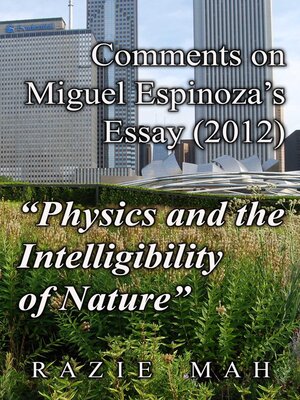Comments on Miguel Espinoza's Essay (2012) "Physics and the Intelligibility of Nature"
ebook ∣ Peirce's Secondness and Aristotle's Hylomorphism, #9 · Peirce's Secondness and Aristotle's Hylomorphism
By Razie Mah

Sign up to save your library
With an OverDrive account, you can save your favorite libraries for at-a-glance information about availability. Find out more about OverDrive accounts.
Find this title in Libby, the library reading app by OverDrive.



Search for a digital library with this title
Title found at these libraries:
| Library Name | Distance |
|---|---|
| Loading... |
In Philosophy of Nature (1935), Jacques Maritain spends six full pages on Emile Meyerson, a contemporary French reactionary to Positivist judgment. Like Maritain Meyerson is concerned with the epistemology of phenomena. How does the scientific intellect work?
Miguel Espinoza, at the University of Strasborg, reviews and critiques Meyerson. Meyerson shows how the empirical sciences, such as physics, produces paradoxes. Espinoza claims that these paradoxes resolve when the scientist no longer fixates on identifying existence as "whatever is subject to causality". Both the scientific intellect and phenomena tap the same potential.
Models of the Positivist's and Aristotle's judgment, as well as empirio-schematics and Aristotle's injunction, are developed in Comments on Jacques Maritain's Book. Applied here, they open Espinoza's critique in surprising ways.







